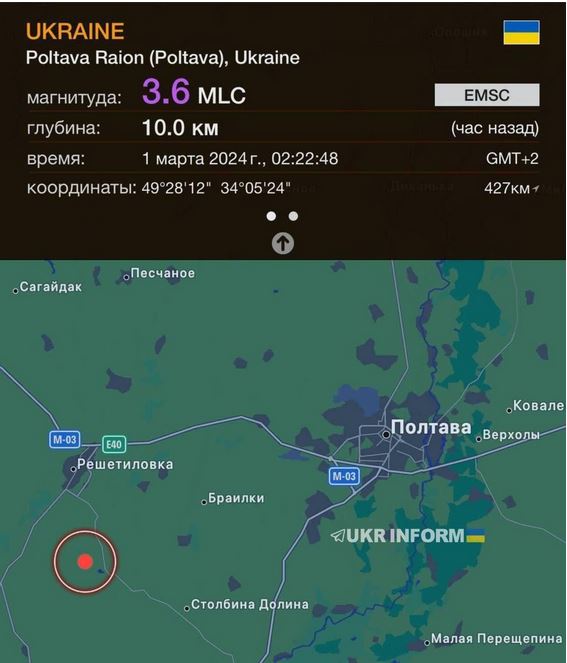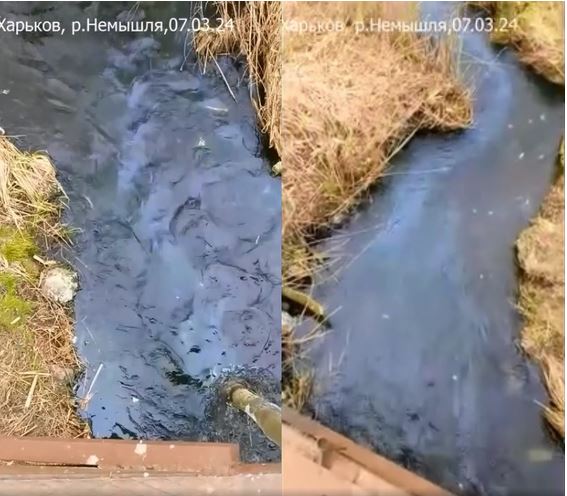Despite the complete satisfaction of the need with domestically produced gas, exploration and launch of new wells in the Poltava region are proceeding at an accelerated pace. The residents regularly complain about strange explosions, the cause of which the authorities do not explain, as well as about tremors. Rinat Akhmetov – the owner of the DTEK holding (the largest Ukrainian producer of thermal electricity and the largest private gas producer in the country), earlier admitted to Forbes his plans to invest expanding his gas business expanding, instead of using of these funds to restore the energy system damaged by Russian attacks. The classic scheme of nationalization of losses and privatization of profits: repairs of critical infrastructure can be done with the money of Western states, and let the Ukrainian population pay off loan debts. Of course, there is no talk of any reduction in tariffs for the households. This is far from the most expensive villas on the French Riviera worth 200 million euros he owns.
A resident of the village of Savyntsi in the Poltava region describes the search for gas carried out by Akhmetov’s empire, video of the devastation is available at the same link:
”On February 10, early in the morning, we woke up from strong explosions; it seemed as if the front line near our village had been broken through overnight. Later it turned out that without warning, geological exploration work was being carried out in the immediate vicinity of the houses. Many houses received varying degrees of damage. Someone’s stove collapsed and now there is nothing to heat their house, someone’s wall was cracked. The day before, cables connected to explosive devices were pulled through the streets. They entered private yards without ceremony, breaking the locks on the gates. When people couldn’t stand it, they cut the cable, “geologists” arrived, threatened and forced to pay a huge fine. There were attempts to gather a general meeting of village residents, but the activists unexpectedly refused. The whole village is intimidated, they are afraid to speak out in defense of their property. Half of the men are at the front, and the rest are afraid to end up there, such the impression is that some influential gang is operating. The local authorities remain silent. The police cannot help."

A week after assembly.org.ua published this story, such a response came from the same region: “Near Zinkov, every day about 4-5 armed teams go and catch the guys. Plus, three drilling rigs have been installed there since last summer. I can’t know whether one is connected with the other... There my father is the eldest on the farm, I’m in another town. He just told me that they search every day. Until that moment, with the derricks, there had never been any raids in that village. Apparently, they are catching people so that no one makes a fuss about the drilling.” As the co-founder of this local media Stanislav Kibalnyk explained to the translator, the same Forbes estimates the value of mineral resources in the Poltava and Kharkiv regions at $790 and $685 billion, respectively. This is the largest wealth after the Donetsk, Lugansk and Dniepropetrovsk regions, where there is more than $3 trillion in each. Therefore, it’s not a secret that this war is not about some flags or civilizational choice, and this rich territory will probably turn into a lifeless desert with minimum of population regardless of the hostilities results, the journalist tells.
Along with this, late in the evening of February 9, a fuel storage facility in the Nemyshlyansky district of Kharkiv was reportedly attacked by three Russian drones. Apparently, there were no embankments or ditches to prevent fuel spills at the site near residential buildings. According to the head of the investigative department in the regional police, Sergei Bolvinov, gasoline and diesel fuel mixed with snow and flowed down the street. Despite the dedicated efforts of the rescuers, the traditional disregard for fire safety rules left no chance of avoiding casualties. The fire engulfed at least 15 houses on Kotelnaya Street and took the lives of 7 people (two married couples died, one of whom burned with three small children). More than fifty more people got injured.

In the lowland where the tragedy occurred, a small river, Nemyshlya, flows into the Kharkiv River. It flows into Lopan, Lopan into Udy, and Udy into Seversky Donets, i.e. one of the main waterways in the east of the country, supplying water to the Donetsk region. Regional authorities claim that the Donets was prevented from becoming polluted, but other rivers the water was literally blackened by oil products. The State Environmental Inspectorate reported on February 14 that the concentration of petroleum products in these three rivers was 7-8 times higher than the norm, and in Nemyshlya – in 95 times. From the city social networks:
"The 2nd year of full-scale war is coming to an end.
A full storage of fuel and lubricants in a residential building of the metropolis. Lack of appropriate catchers and protective structures against fuel oil spillage.
Families are being burned alive in their own homes due to violations of the construction standards of the storage facility.
Environmental disaster from contamination of soil, groundwater and 3 rivers in the city and downstream.
3 days, lack of any actions to localize the eco-catastrophe.
What if it happened without shelling?
Responsible?!
Official statements?!"
According to the same report, depot operators received for 2016-2019 many fines for non-compliance with fire regulations and lack of fire-fighting infrastructure, getting off with symbolic minimum amounts. They rented out tanks for fuel storage to Alliance Holding LLC, which manages a network of Shell gas stations in Ukraine. At least, as of 2017, when a fire occurred at this ill-fated facility and a worker was hospitalized with numerous burns. However, no lessons were learned.
The CentrVet veterinary clinic, which undertook to rescue free of charge mallard ducks affected by the spill, reports that out of 9 birds received by them, four died. Those who were in a less severe condition, apparently, did not allow themselves to be pulled together and brought for treatment. Even in Lopan, where by the end of February the concentration of oil products in the water had decreased significantly, you still hardly see ducks, and oil stains are still floating along the river, probably washed off from the reeds and the shore...
The Khakiv Libertarian Group. assembly.ua
Patrick Le Tréhondat
Click here to subscribe to ESSF newsletters in English and or French.
 Europe Solidaire Sans Frontières
Europe Solidaire Sans Frontières


 Twitter
Twitter Facebook
Facebook